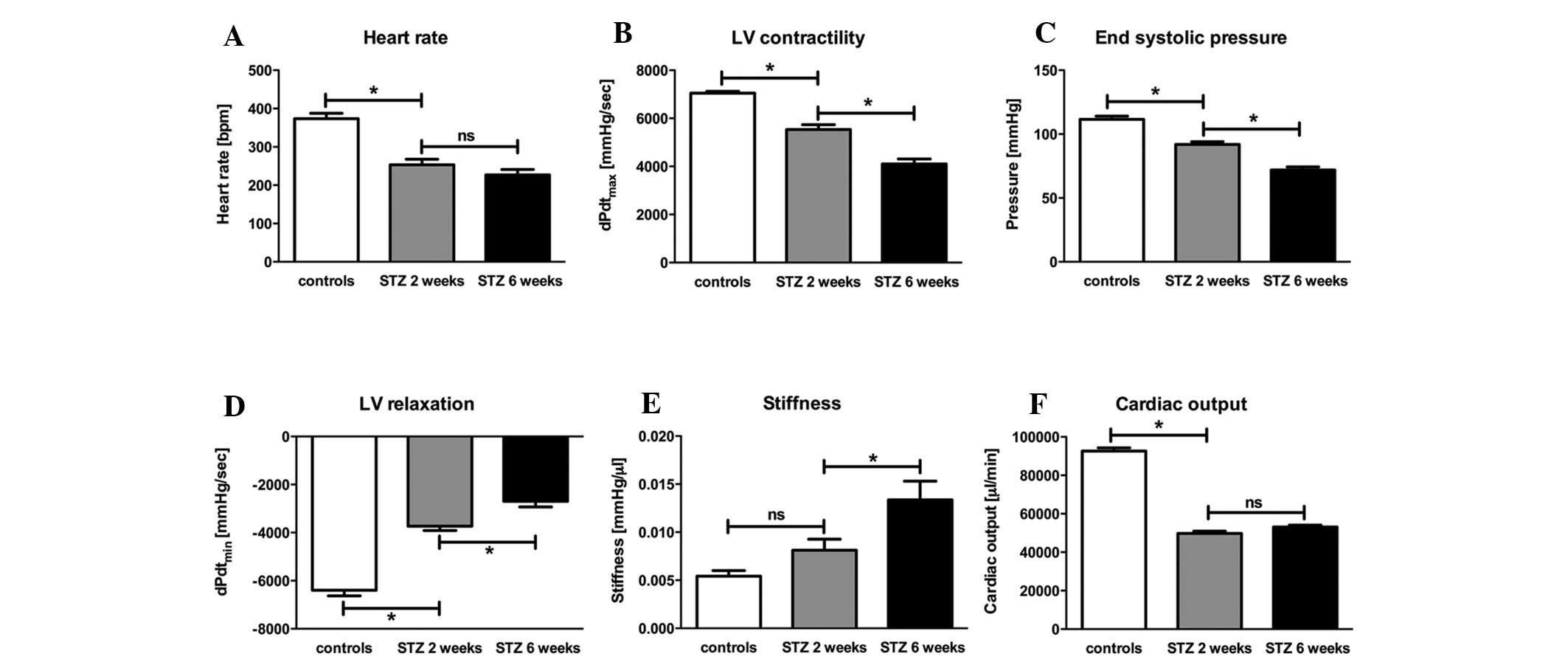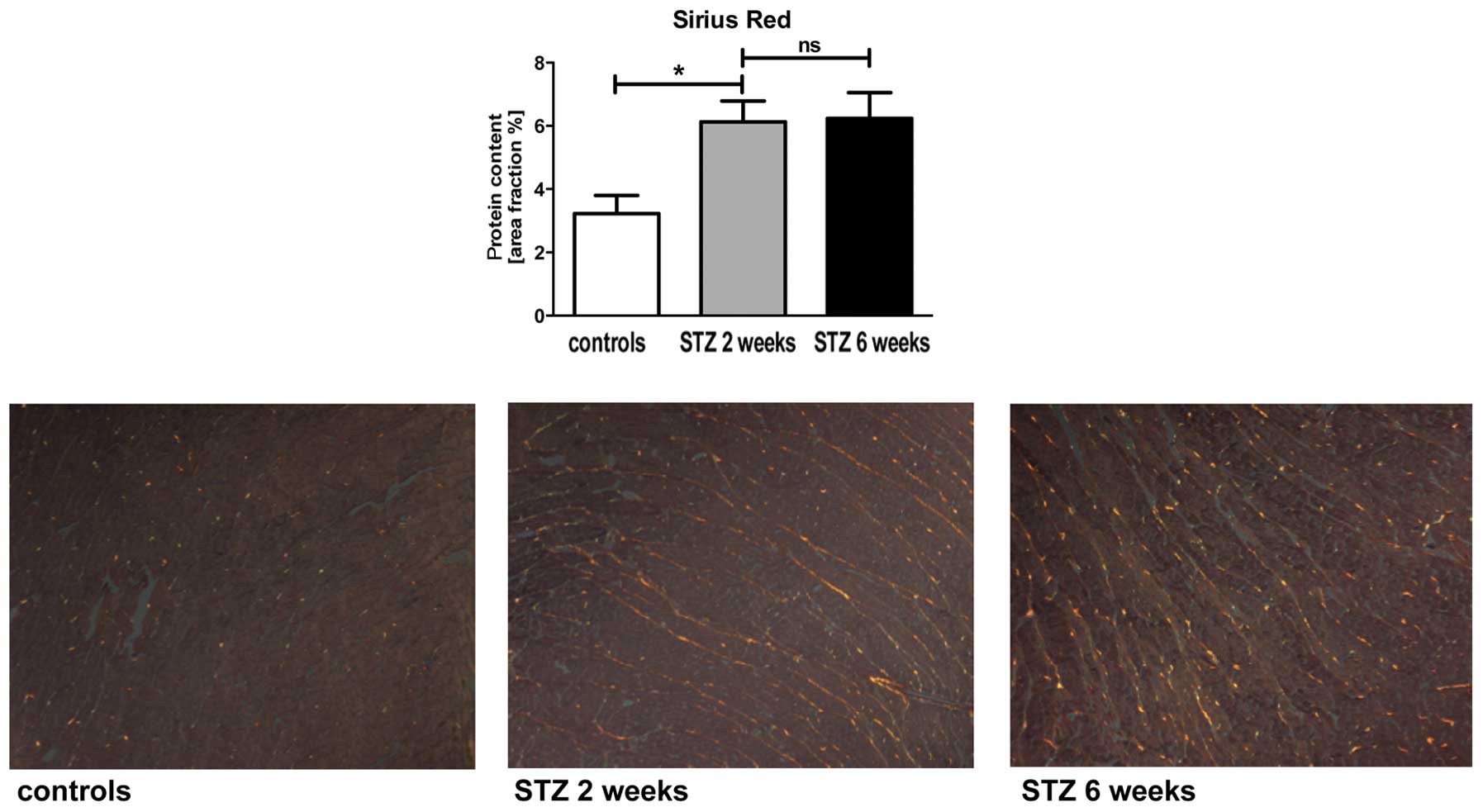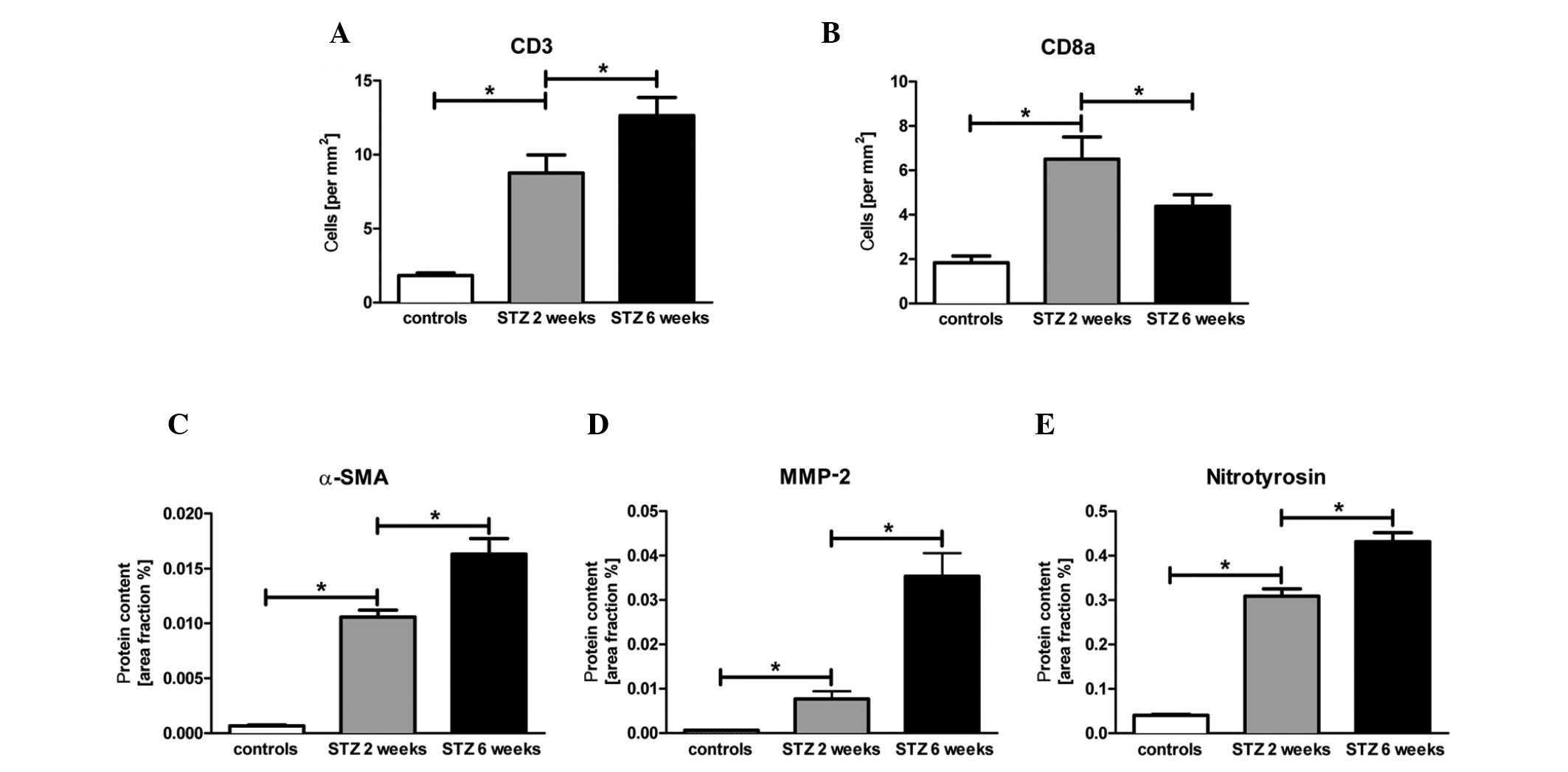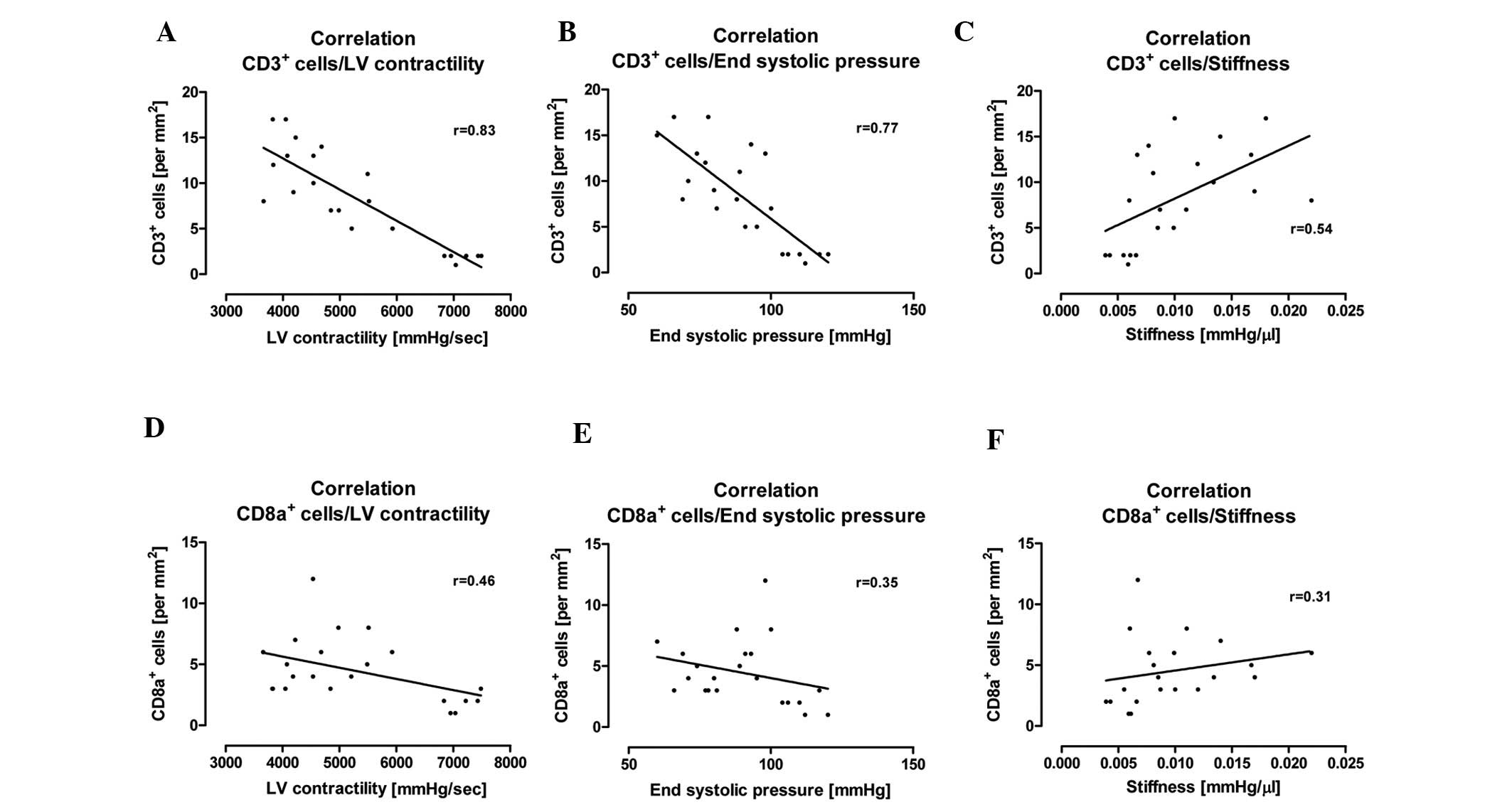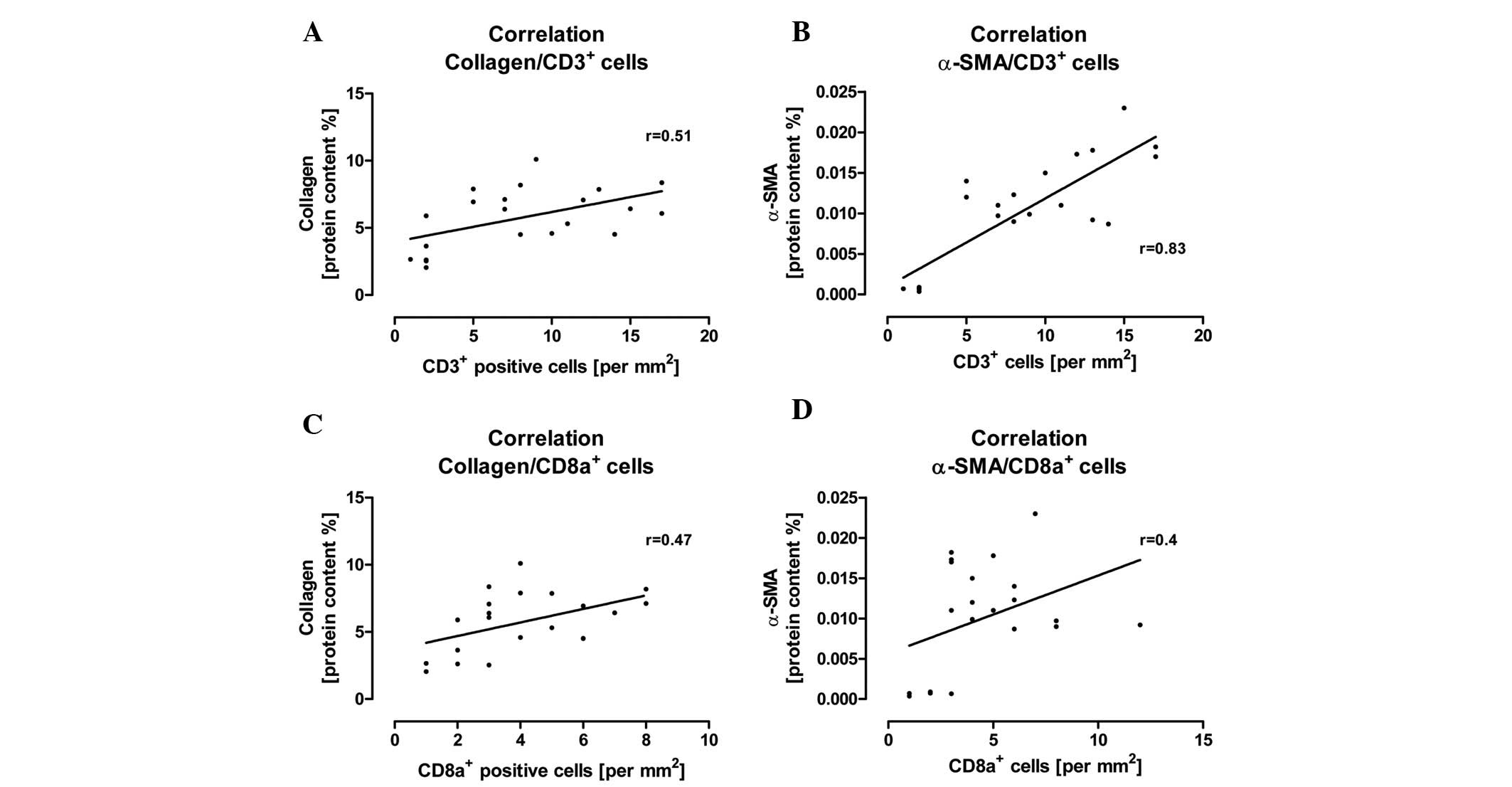|
1.
|
Poornima IG, Parikh P and Shannon RP:
Diabetic cardiomyopathy: the search for a unifying hypothesis. Circ
Res. 98:596–605. 2006. View Article : Google Scholar : PubMed/NCBI
|
|
2.
|
Grundy SM, Benjamin IJ, Burke GL, et al:
Diabetes and cardiovascular disease: a statement for healthcare
professionals from the American Heart Association. Circulation.
100:1134–1146. 1999. View Article : Google Scholar : PubMed/NCBI
|
|
3.
|
Howard BV and Wylie-Rosett J: Sugar and
cardiovascular disease: a statement for healthcare professionals
from the Committee on Nutrition of the Council on Nutrition,
Physical Activity, and Metabolism of the American Heart
Association. Circulation. 106:523–527. 2002. View Article : Google Scholar
|
|
4.
|
Devereux RB, Roman MJ, Paranicas M, et al:
Impact of diabetes on cardiac structure and function: the strong
heart study. Circulation. 101:2271–2276. 2000. View Article : Google Scholar : PubMed/NCBI
|
|
5.
|
Cai L, Li W, Wang G, Guo L, Jiang Y and
Kang YJ: Hyperglycemia-induced apoptosis in mouse myocardium:
mitochondrial cytochrome C-mediated caspase-3 activation pathway.
Diabetes. 51:1938–1948. 2002. View Article : Google Scholar : PubMed/NCBI
|
|
6.
|
Heymans S, Hirsch E, Anker SD, et al:
Inflammation as a therapeutic target in heart failure? a scientific
statement from the Translational Research Committee of the Heart
Failure Association of the European Society of Cardiology. Eur J
Heart Fail. 11:119–129. 2009. View Article : Google Scholar
|
|
7.
|
Tschope C, Walther T, Koniger J, et al:
Prevention of cardiac fibrosis and left ventricular dysfunction in
diabetic cardiomyopathy in rats by transgenic expression of the
human tissue kallikrein gene. FASEB J. 18:828–835. 2004. View Article : Google Scholar : PubMed/NCBI
|
|
8.
|
Tschope C, Spillmann F, Rehfeld U, et al:
Improvement of defective sarcoplasmic reticulum Ca2+
transport in diabetic heart of transgenic rats expressing the human
kallikrein-1 gene. FASEB J. 18:1967–1969. 2004.PubMed/NCBI
|
|
9.
|
Westermann D, Rutschow S, Jager S, et al:
Contributions of inflammation and cardiac matrix metalloproteinase
activity to cardiac failure in diabetic cardiomyopathy: the role of
angiotensin type 1 receptor antagonism. Diabetes. 56:641–646. 2007.
View Article : Google Scholar
|
|
10.
|
Riad A, Westermann D, Van Linthout S, et
al: Enhancement of endothelial nitric oxide synthase production
reverses vascular dysfunction and inflammation in the hindlimbs of
a rat model of diabetes. Diabetologia. 51:2325–2332. 2008.
View Article : Google Scholar : PubMed/NCBI
|
|
11.
|
Westermann D, Van Linthout S, Dhayat S, et
al: Cardioprotective and anti-inflammatory effects of interleukin
converting enzyme inhibition in experimental diabetic
cardiomyopathy. Diabetes. 56:1834–1841. 2007. View Article : Google Scholar
|
|
12.
|
Westermann D, Rutschow S, Van Linthout S,
et al: Inhibition of p38 mitogen-activated protein kinase
attenuates left ventricular dysfunction by mediating
pro-inflammatory cardiac cytokine levels in a mouse model of
diabetes mellitus. Diabetologia. 49:2507–2513. 2006. View Article : Google Scholar
|
|
13.
|
Westermann D, Becher PM, Lindner D, et al:
Selective PDE5A inhibition with sildenafil rescues left ventricular
dysfunction, inflammatory immune response and cardiac remodeling in
angiotensin II-induced heart failure in vivo. Basic Res Cardiol.
107:3082012. View Article : Google Scholar : PubMed/NCBI
|
|
14.
|
Becher PM, Lindner D, Miteva K, et al:
Role of heart rate reduction in the prevention of experimental
heart failure: comparison between If-channel blockade and
beta-receptor blockade. Hypertension. 59:949–957. 2012. View Article : Google Scholar : PubMed/NCBI
|
|
15.
|
Wang J, Song Y, Elsherif L, et al: Cardiac
metallothionein induction plays the major role in the prevention of
diabetic cardiomyopathy by zinc supplementation. Circulation.
113:544–554. 2006. View Article : Google Scholar : PubMed/NCBI
|
|
16.
|
Westermann D, Van Linthout S, Dhayat S, et
al: Tumor necrosis factor-alpha antagonism protects from myocardial
inflammation and fibrosis in experimental diabetic cardiomyopathy.
Basic Res Cardiol. 102:500–507. 2007. View Article : Google Scholar : PubMed/NCBI
|
|
17.
|
Van Linthout S, Riad A, Dhayat N, et al:
Anti-inflammatory effects of atorvastatin improve left ventricular
function in experimental diabetic cardiomyopathy. Diabetologia.
50:1977–1986. 2007.PubMed/NCBI
|
|
18.
|
Dorenkamp M, Riad A, Stiehl S, et al:
Protection against oxidative stress in diabetic rats: role of
angiotensin AT(1) receptor and beta 1-adrenoceptor antagonism. Eur
J Pharmacol. 520:179–187. 2005. View Article : Google Scholar : PubMed/NCBI
|
|
19.
|
Savvatis K, Westermann D, Schultheiss HP
and Tschope C: Kinins in cardiac inflammation and regeneration:
insights from ischemic and diabetic cardiomyopathy. Neuropeptides.
44:119–125. 2010. View Article : Google Scholar : PubMed/NCBI
|
|
20.
|
Yeghiazaryan K, Bauriedel G, Schild HH and
Golubnitschaja O: Prediction of degeneration of native and
bioprosthetic aortic valves: issue-related particularities of
diabetes mellitus. Infect Disord Drug Targets. 8:88–99. 2008.
View Article : Google Scholar : PubMed/NCBI
|
|
21.
|
Marwick TH: Diabetic heart disease. Heart.
92:296–300. 2006.
|
|
22.
|
Tyagi SC and Hayden MR: Role of nitric
oxide in matrix remodeling in diabetes and heart failure. Heart
Fail Rev. 8:23–28. 2003. View Article : Google Scholar : PubMed/NCBI
|
|
23.
|
Tsioufis C, Bafakis I, Kasiakogias A and
Stefanadis C: The role of matrix metalloproteinases in diabetes
mellitus. Curr Top Med Chem. 2:1159–1165. 2012. View Article : Google Scholar
|
|
24.
|
Leask A: Potential therapeutic targets for
cardiac fibrosis: TGFbeta, angiotensin, endothelin, CCN2, and PDGF,
partners in fibroblast activation. Circ Res. 106:1675–1680. 2010.
View Article : Google Scholar : PubMed/NCBI
|
|
25.
|
Hammoud L, Lu X, Lei M and Feng Q:
Deficiency in TIMP-3 increases cardiac rupture and mortality
post-myocardial infarction via EGFR signaling: beneficial effects
of cetuximab. Basic Res Cardiol. 106:459–471. 2011. View Article : Google Scholar : PubMed/NCBI
|
|
26.
|
Bugger H and Abel ED: Mitochondria in the
diabetic heart. Cardiovasc Res. 88:229–240. 2010. View Article : Google Scholar : PubMed/NCBI
|
|
27.
|
Henderson BC and Tyagi SC: Oxidative
mechanism and homeostasis of proteinase/antiproteinase in
congestive heart failure. J Mol Cell Cardiol. 41:959–962. 2006.
View Article : Google Scholar : PubMed/NCBI
|
|
28.
|
La Rocca G, Di Stefano A, Eleuteri E, et
al: Oxidative stress induces myeloperoxidase expression in
endocardial endothelial cells from patients with chronic heart
failure. Basic Res Cardiol. 104:307–320. 2009.PubMed/NCBI
|
|
29.
|
Regan TJ, Wu CF, Yeh CK, Oldewurtel HA and
Haider B: Myocardial composition and function in diabetes. The
effects of chronic insulin use. Circ Res. 49:1268–1277. 1981.
View Article : Google Scholar : PubMed/NCBI
|
|
30.
|
Iribarren C, Karter AJ, Go AS, et al:
Glycemic control and heart failure among adult patients with
diabetes. Circulation. 103:2668–2673. 2001. View Article : Google Scholar : PubMed/NCBI
|
|
31.
|
Dhalla NS, Pierce GN, Innes IR and Beamish
RE: Pathogenesis of cardiac dysfunction in diabetes mellitus. Can J
Cardiol. 1:263–281. 1985.PubMed/NCBI
|















